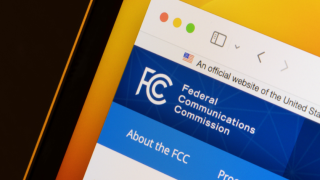On the docket for the agency’s upcoming meeting is a proposal to rip up 1990s-era satellite rules that companies like SpaceX argue are holding back next-generation broadband.
The Commission will consider launching a formal review of long-standing power limits imposed on non-geostationary satellite systems (NGSOs) — a move that could ease technical constraints on operators like SpaceX and Amazon’s Project Kuiper.
The proposed rulemaking would invite public comment on whether modern satellite networks can coexist more efficiently with legacy geostationary systems under updated sharing frameworks.
If approved at the April 28 meeting, the proposal would mark a significant shift in how the FCC approaches spectrum coordination in the increasingly crowded skies.
FCC Chairman Brendan Carr said the proposal will help satellite providers deliver even faster Internet.
“Americans want more choices for affordable, high-speed Internet,” he said, with the proposal looking to remove outdated technical barriers that have limited the performance of next-generation satellite systems.
The changes would see the FCC look to replace or revise power limits designed to protect geostationary satellites from interference. Specifically, the proposal would review power restrictions placed on NGSO satellites in the 10.7–12.7 GHz, 17.3–18.6 GHz, and 19.7–20.2 GHz bands.
The FCC is also considering whether to replace the current EPFD (equivalent power-flux density) limits with more flexible, performance-based criteria that reflect today’s satellite capabilities and interference realities.
Critics, including Starlink, argue those limits, developed in the 1990s, no longer reflect the realities of today’s space-based broadband services and may even be holding them back.
Carr has long been a proponent of satellite services, specifically taking issue with the Biden administration’s decision to revoke Starlink subsidies, saying it “prioritised political and ideological goals at the expense of connecting Americans”.
In March, his agency signed off on allowing Starlink's direct-to-cell service to operate at higher power levels.
“The FCC will continue the work of unleashing America's space economy,” the agency chair said at the time.
Starlink has already been controversially deployed at the White House, with some lawmakers concerned about awarding public funds to the Musk-owned firm due to his de facto front-of-line role in the Trump administration.
Beyond satellite connectivity, also on the docket at the upcoming FCC meeting are prospective new rules for the Lower 37 GHz band (37–37.6 GHz), aiming to establish a licensing framework that balances federal and non-federal use of the spectrum.
The Commission will also consider proposals to expand robocall protections by requiring caller ID authentication on non-IP networks and clarify how foreign investment reviews are handled for wireless, broadcast, and aviation-related communications licenses.
RELATED STORIES
Musk's DOGE team expands to the FCC amid agency cost-cutting efforts: report
FCC seeks to eliminate ‘unnecessary’ rules in sweeping regulatory rollback
FCC commissioner to step down to further strengthen Republican control








